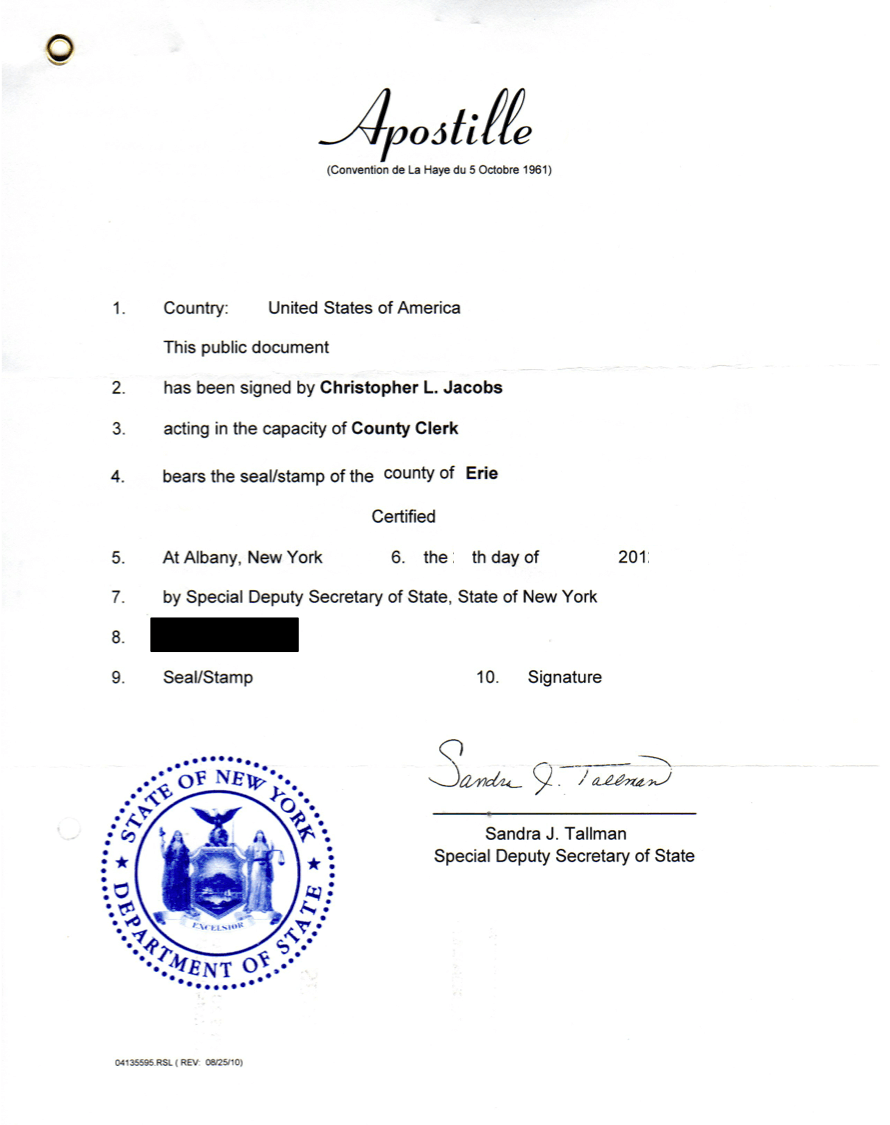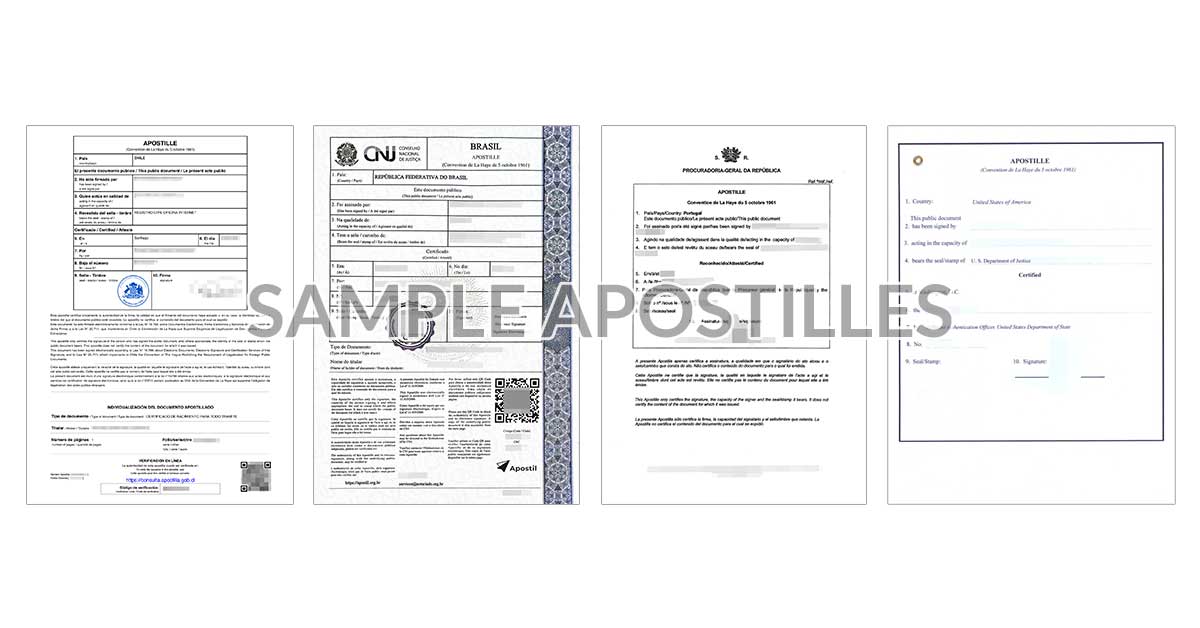Comprehending the Apostille Process: A Comprehensive Guide to International Document Authentication
Browsing the elaborate landscape of international paper verification can be discouraging without a clear understanding of the apostille procedure. What exactly defines an apostille, and why is it so crucial for documents destined for Hague Convention nations?
What Is an Apostille?
An apostille is an official certification that validates the authenticity of a document for usage in one more nation. This accreditation, released by a designated authority in the country where the paper originated, ensures that the record is identified as valid and genuine in the international arena. The process of acquiring an apostille involves several steps, consisting of the verification of the record's trademarks, seals, and stamps by proper governmental bodies.
The apostille offers as a globally acknowledged kind of authentication, made possible by the Hague Convention of 1961. This treaty, officially referred to as the Hague Convention Eliminating the Demand of Legalisation for Foreign Public Papers, systematizes the process of document certification amongst member countries. The apostille itself is a standardized certification that has details information, such as the issuing authority, the native land, and the date of issuance.
It is crucial to keep in mind that not all files are eligible for an apostille. Usually, public documents like birth certifications, marriage licenses, court orders, and educational diplomas receive this qualification. Personal documents, such as agreements and contracts, may call for registration and additional actions to qualify.
Relevance of Apostille
Recognizing what an apostille is sets the phase for appreciating its relevance in global negotiations. houston tx apostille. An apostille, essentially a form of certification released by a designated authority, verifies the authenticity of a record for usage in foreign nations that are signatories to the Hague Apostille Convention. This standard procedure eliminates the requirement for more legalisation by consular offices or consular offices, thereby streamlining international transactions
The importance of an apostille can not be overstated. It ensures the reputation and acceptance of necessary files-- such as birth certifications, marriage licenses, and educational diplomas-- throughout boundaries. For companies, it facilitates the smooth conduct of worldwide profession, mergers, and procurements by offering a trusted technique of record verification. This decreases administrative obstacles, conserving both time and resources.
Moreover, an apostille enhances legal safety and security and conformity. Governments and institutions can with confidence rely on the authenticity of files bearing an apostille, mitigating the danger of scams and misstatement.
Files That Call For Apostille
When participating in global deals or legal matters, particular papers typically necessitate the verification given by an apostille. This ensures their acknowledgment and approval in nations that are notaries to the Hague Apostille Convention. Typically, individual papers such as copyright, marital relationship certificates, and fatality certifications learn the facts here now need an apostille, specifically when they are utilized for processes like immigration, marital relationship abroad, or worldwide probate matters.
Educational records are one more category frequently requiring apostilles. Diplomas, records, and academic documents usually require this authentication for functions such as pursuing more education, work, or specialist licensing in a foreign nation (houston tx apostille). This action ensures that the records are recognized as reputable and legitimate
Legal files, consisting of powers of lawyer, affidavits, and court orders, also generally necessitate apostilles. Business files such as certifications of incorporation, laws, and business agreements might require an apostille to help with international trade, develop international branches, or participate in cross-border lawful proceedings.
Steps to Obtain an Apostille

Acquiring an apostille includes a multi-step process that makes sure the authenticity and approval of your records in international nations. The preliminary step is recognizing which records require an apostille. houston tx look at this website apostille. Common records include copyright, marriage licenses, academic records, and business records
Once recognized, the document has to investigate this site be licensed by the proper releasing authority. After accreditation, the file should be submitted to the assigned Competent Authority in the record's nation of beginning.
The submission procedure generally calls for a finished application, the original file, and a charge. Some territories may offer the option of expedited handling for an extra fee. Upon effective confirmation, the Competent Authority will certainly fasten the apostille certificate to the file, thus validating its authenticity.
Typical Difficulties and Solutions
Navigating the apostille process can provide a number of common difficulties that, otherwise correctly attended to, may postpone or make complex document verification. One frequent concern is the submission of wrong or incomplete documents. Each country has specific demands for the types of files that can be apostilled, and any variance from these can lead to denial. Ensuring that all documents are exact and complete before entry is vital.
One more common challenge is comprehending the different handling times. Handling times can differ significantly in between nations and even in between various areas within the exact same country. It is important to account for these variations when planning the apostille process to avoid unforeseen hold-ups.
In addition, language barriers can pose considerable barriers. Documents in a foreign language often call for qualified translations, and any kind of inaccuracies in translation can result in more difficulties. Involving a professional translation solution can minimize this danger.

Conclusion
Mastering the apostille procedure dramatically improves the effectiveness of international record authentication. By understanding the necessity of recognizing and licensing called for documents, and browsing the entry to the Competent Authority, the process becomes a lot more manageable.